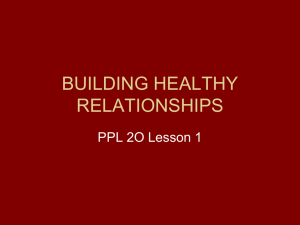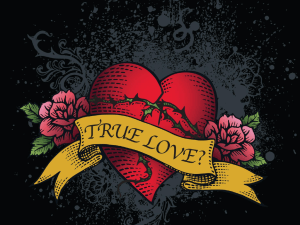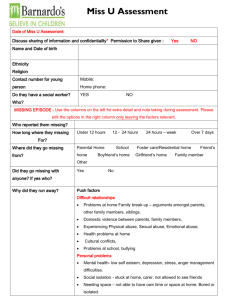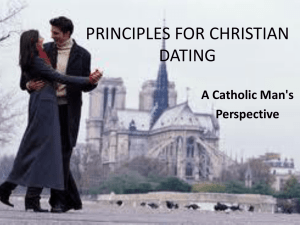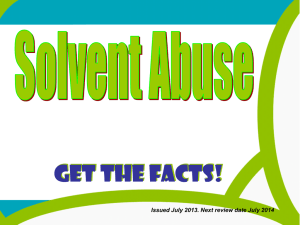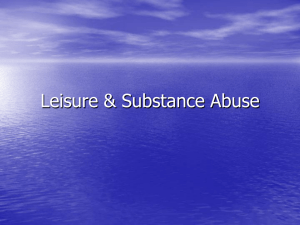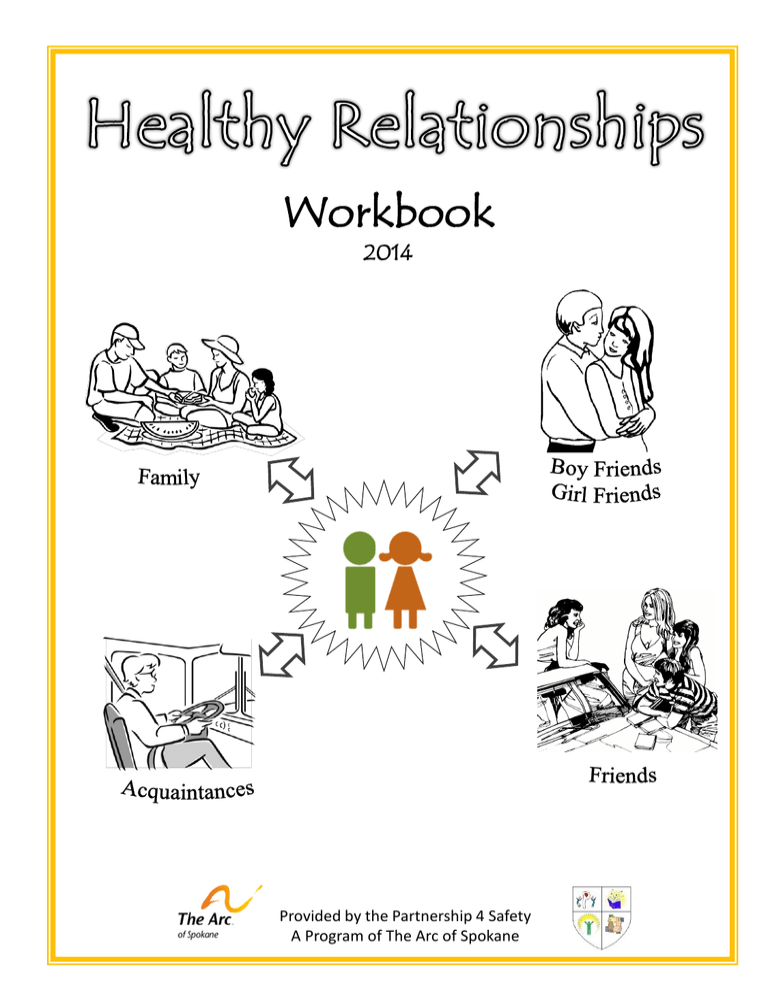
Workbook
2014
Provided by the Partnership 4 Safety
A Program of The Arc of Spokane
Healthy Relationships
This is your Healthy Relationships workbook.
This book is to help you to choose healthy relationships!
It is easy to read so that many students can use it.
It has coloring sheets because many people like to color
when they are learning. You do not have to color the
sheets.
This workbook has pages on:
1. Personal rules
2. Different types of Relationships
3. Healthy Friendships
4. Healthy Dating
5. Consent
6. Phone safety
7. Facebook safety
8. Unhealthy relationships
9. Recognizing abuse
10. What to do if you are being abused
Enjoy using your Healthy Relationships workbook!
2
Group Rules
Group rules:
1. Care for each person’s feelings
2. Make it feel safe to talk
3. Make it easy to be heard
4. Remind us of how we want to treat others
5. Remind us of how we want to be treated!
3
Adult words for personal body parts
Why doesn’t everyone use these words?
1. Some people did not learn body part words.
2. Some people think some body parts are “dirty”.
3. Many people are embarrassed by sexual body parts.
Why use adult words?
1. Because you are a young adult, and these are adult words
2. So your doctor will treat you like a young adult.
3. So the police will take you seriously.
4
What are Personal Rules?
Your Rules tell other people how you want to be treated!
Your Rules can be about:
1. How close people can be to you.
How much room do you like?
-A lot of room?
-A little room?
2. Your body
Who gets to touch you?
When do people get to touch you?
Where do people get to touch you?
5
3. Your feelings;
How do you want people talk to you?
Nicely, with respect
Or not nicely, with NO respect
4. Why rules are important!
Rules let YOU choose:
•Who you spend time with
•How people should treat you.
•Rules help you choose who your friends are!
6
My Personal Rules
Your rules are IMPORTANT!
7
Teaching about your rules
Who do I want to teach? Boys or girls at school, friends
teachers, co-workers, supervisors
How do I do it?
1. Sit up or stand up straight
2. Look into the other person’s eyes
3. Use a nice voice
4. Tell the person what you need them to do
EXAMPLE: If you don’t like people to sit close to you –
you could say “Please don’t sit so close to me”
4. Remember to say “Thank you”
8
Stopping Scary People
When do I do it?
•
Anytime someone makes you feel afraid.
•
When you do not feel safe!
How do I do it?
1. Walk away
2. If they bother you
1.
Yell “go away” or
2. Blow your whistle
3. Go get help
Who can help?
9
What IS a relationship
10
Healthy Relationships
are an important part of life!
Healthy relationships are like healthy food.
1.
They make you healthier
2.
They make you stronger
3.
They make your life better!
4.
Which foods are healthy?
5.
What can happen if you only eat unhealthy food?
11
Types of Relationships
There are many types of relationships.
How many can you think of?
12
RESPECT in a healthy relationship
What does Respect mean to you?
1.
RESPECT is a CHOICE you make
2.
It’s not about liking people
3.
It is about treating people like human beings
4.
RESPECT is beginning of ALL Healthy Relationships
5.
RESPECT has to go both ways in a healthy relationship
6. RESPECT must be IN a relationship from the BEGINNING
or it will never be in it AT ALL!!!
13
TRUST in a Healthy Relationship
1. What does TRUST mean to you?
2. TRUST is NOT the same as liking
3. TRUST is NOT the same as respect
4. Trust has to be earned!
5. It talks TIME to trust people
6. People must prove they are trust-worthy
time
14
Friend or Acquaintance
A Friend shares your hobbies and activities with you
An Acquaintance is just someone you know
Friend
Acquaintance
Is with you because:
Is with you to do a job:
1. You do fun things together
1. Bus driver
2. You like each other
2. Nurse
3. You enjoy spending time
3. Caregiver
together
4. Job Coach
5. Payee
15
Friend or Acquaintance?
Most of the people I know are friends or acquaintances?
16
What do you want in a friend?
1. Someone who shares your hobbies!
2. Someone who enjoy being with you!
3. Someone who supports you!
4. Write down some of your hobbies or activities
17
Friendships take TIME
1. It takes time to get to know a person.
2. Take the time to learn about a person’s hobbies.
3. It takes time to learn what a person likes and doesn’t like.
4. It takes time to know if a person can be trusted!
18
In a Healthy Friendship
1. You agree to be friends
2. You treat each other with RESPECT
3. You feel happy, safe and cared for
4. You share the cost of activities
5. You are nice to each other
6. You listen to each other
19
Are you ready to be in a Dating
Relationship?
You are ready to be in a dating relationship if:
1. Neither of you are already married
2. Neither of you are in another dating relationship
3. You are close to the same age
4. You are both old enough to be in a relationship
5. You BOTH want to be in a dating relationship
20
Date or NOT date?
Types of romantic relationship (Dating relationships)
1. Boyfriend or Girlfriend
2. Husband or Wife
In romantic relationships you:
1. Go on dates together
2. Do not date other people
3. Are committed to each other
4. Learn A LOT about each other
5. Might hold hands or kiss
6. Might have sex
Healthy dating relationships start as healthy friendships.
Types of nonromantic relationships (NOT dating relationships)
1. Family
2. Acquaintances
3. Co-Workers
4. Bus Drivers
5. Employment Specialists
6. Payee
21
What do YOU want in a Boyfriend
or Girlfriend?
Write down what is important to you!
22
What is a GOOD Girlfriend or
Boyfriend?
1
2
3
4
5
6
7
8
9
10
11
12
13
14
15
16
17
18
19
A GOOD girlfriend or boyfriend
Teases me and hurts my feelings
Stands up for me
Cancels our dates a lot
Picks fights with me
Hits me
Enjoys the same things I do
Accepts me the way I am
Supports me when I am down
Tells me who I can be friends with
Yells at me
Wants to know where I am ALL THE TIME
Calls me mean names
Respects me
Is jealous of my friends
Thinks I am cheating with other people
Scares your friends or family
Tells me I am stupid
Is a real friend
Does not make me do things
Yes
No
23
How much do I know?
Take this quick quiz to find out how much do you
know about your boyfriend or girlfriend
1. We have met in person
Yes
No
2. I know her/his hobbies
Yes
No
3. I have met his/her friends
Yes
No
4. I know what movies he/she likes
Yes
No
5. I know what activities he/she likes
Yes
No
6. I have met his/her parents or family
Yes
No
Yes
No
Count the yes and no answers
I know about my boyfriend or girlfriend?
24
In Healthy Dating Relationship
• Your rules are RESPECTED
So…can I
kiss you?
No, I’m not
ready for
that yet
OK
25
In a Healthy Dating Relationship
1. You are HONEST with each other
2. You can TRUST each other
3. You RESPECT each other
4. You do not feel forced to do anything-ever!
26
CHOICES
in a Healthy Dating Relationship
You share choices like:
1. What movies to see
2. What friends to hang out with
3. How much you talk on the phone
4. How much time to spend together
You both get to make choices in the relationship!
27
Good Communication
its important!
1. Talk about your rules
2. Be honest about your feelings
3. Be a good listener
4. Fight fair
• No temper tantrums
• No threats
• No name calling
Do you want to go No, thank you.
to the car show
I don’t enjoy car
with me Friday?
shows . How
about a movie
instead?
28
How to have a difficult talk
When you have something important to say:
1. Pick the right TIME to talk
When you both have the time to talk
When your boyfriend or girlfriend is not busy
2. Pick the right PLACE to talk
Choose a place where other people can not hear your
conversation
3. Pay ATTENTION
Do not answer calls or texts
4. Be CALM - do not talk when you are angry or upset
29
My rights in a Dating Relationship
I have the right to:
1. Relationships without violence.
2. Not to be controlled other people.
3. Have your own friends
4. Change your mind.
5. Not be together all the time
6. Start slowly.
7. Want physical closeness.
8. Have your own activities
9. Change the relationship when your feelings change.
You always have the right to say, "No.“
Modified from Teens Stopping Rape, distributed by United Learning, 1996.
30
Sex! Are you ready?
Before having a sexual relationship it is very important
to ask yourself:
1. What does sex mean to me?
2. What are my values about sex?
3. What are my family values about sex?
4. What does my religion say about sex?
5. Why am I thinking about it right now?
6. Is someone pressuring me to do this now?
7. What are some of the things that can happen
– Pregnancy
– Sexually transmitted diseases
This is an important decision!
It might help to talk to someone you can trust
31
Am I ready Worksheet
1. What does sex mean to me?
2. What are my values about sex?
3. What are my family values about sex?
4. What does my religion say about sex?
5. Why am I thinking about it right now?
6. Is someone pressuring me to do this now?
7 .What are some of the things that can happen
8. Who can I talk to about this important choice?
32
What is Consent?
1. Consent is a word used in romantic or dating relationships
2. It means you are old enough to make the choice to have sex
3. It means you are ready for sex in a romantic relationship
4. It means you have talked and your boyfriend or girlfriend
5. It means your girlfriend or boyfriend is ready too
6. It means you BOTH know what could happen after sex
7. It means NO ONE is forced – EVER!
8. Consent means talking first!
33
Consent has laws
The Consent laws are important!
1. Sixteen is the “age of consent” in Washington State
2. If someone is younger than 16 they cannot consent to
have a sexual relationship
3. Breaking the Consent laws can mean going to jail.
4. Breaking the Consent laws can put you on a sexual
predator list – for life!
5. REMEMBER!!!
• If a person is not old enough – it is RAPE
• If a person does not give consent – it is RAPE
• If a person is forced to have sex– it is RAPE
34
Texting and Sexting
1. Texting is a fun way to stay in touch!
2. But it is NEVER OK to:
3.
4.
5.
6.
Text you too many times a day
Want to know where you are all the time
Read your texts from other people
Send scary or threatening texts
6. It is NEVER OK to SEXT:
6. To ask for pictures of you in your underwear
7. To ask for pictures your breasts, bottom, pubic area or
penis
8. To ask for naked pictures of you
9. Send you pictures of their breasts, bottom, pubic area
or penis
10. To send anyone pictures of YOUR breasts, bottom,
pubic area or penis EVER!
Information modified from lwww.ove is respect.org
35
What can you do?
1. If someone is sending too many emails
2. Tell them that it is bothering you
3. Tell them how often they can call you
4. Do Not answer when they call
5. Turn off sound so you do not hear call
6 . Block their number
8. Get help from a person you trust
9. If someone sexts you
10. Do not reply to the text
11. Tell a trusted adult right away!
36
Facebook Safety
To be safer on Facebook
1.
2.
3.
4.
5.
6.
7.
Don’t post your address
Don’t post your phone number
Don’t post your school
Don’t post your birthday
Keep your password private
You do not have to “friend” everyone who asks
People can make up fake pages
8. They can have fake pictures
9 .They can have fake personal information
10. Remember- you can not control posts on other people’s
pages
11. Change your privacy settings so that only friends can see
your page
37
What is an Unhealthy
Relationship?
1. In an Unhealthy Relationship:
2. A person uses violence to get their way.
3. A person uses anger to scare the other person.
4. A person forces the other person to do things.
5. A person uses bribes to get what they want
– Money
– Food
– Special treatment
38
In an Unhealthy Relationship
1. There is NO respect
2. Your Rules are not respected
3. Your Feelings are not respected
4. Your Property is not respected
5. Your Privacy is not respected
6. YOU are NOT respected
39
Jealousy is NOT love
Jealousy is:
1. Fear
2. Envy
3. Control
Love is:
1. Trust
2. Acceptance
3. Respect
Love says:
Jealousy says:
1.
2.
3.
4.
5.
6.
I don’t trust you
You are not honest
You cheat
You don’t love me
I don’t respect you
I make all the
decisions
Jealousy is a DANGER sign of
an Unhealthy Relationship
1.
2.
3.
4.
5.
6.
I trust you
You are honest
You are faithful
You love me
I respect you
WE make decisions
together
Love is a 2 way street
40
In an Unhealthy Relationship
1. Only one person gets to make the decisions:
2. Where to go
3. Who to talk to
4. Who to hang out with
5. When to get physical
6. How to spend money
7. One person has all the choices
41
ABUSE
Happens in unhealthy relationships
1. ABUSE is when someone pretends to care about you
2. ABUSE can be Physical
3. Abuse can be Sexual
4. Abuse can be Emotional/Verbal
5. Abuse can be Financial
Why do I always
have to pay for
the movies?
42
Physical Abuse
1. Physical Abuse:
2. Is unwanted touching of you or your clothes
3. Is used to scare you
4. Is used to control you
5. Physical abuse in a romantic relationship is called
Domestic Violence
6. Physical abuse can be:
7. Scratching
8. Punching
19. Pulling your hair
10. Pushing you
11. Grabbing your clothing
12. Forcing you to go somewhere
13. Using a gun, knife, bat or other weapon
14. Grabbing your face to make you look at them
Information modified from lwww.ove is respect.org
43
Sexual Abuse
1. Sexual Abuse is
2.
3.
4.
Being made (coerced) to do something sexual
Being forced to do something sexual
Being told that you do not have a choice
5. Sexual abuse can be
6.
7.
8.
9.
10.
Unwanted kissing
Unwanted touching of your sexual body parts
Forcing you to have sex
Threatening you if you do not have sex
Threatening to hurt your friends or family if you do not
have sex
11. Having sex with a person who is not old enough
12. Having sex with someone who is drunk
Information modified from lwww.ove is respect.org
44
Emotional/Verbal Abuse
1. Emotional/Verbal Abuse is when someone uses:
– Scary non-touching behaviors
– To control you
– To keep you away from your friends and family
2. Emotional/Verbal Abuse can be:
3. Yelling or screaming at you
4. Calling you names or putting you down
5. Not letting you talk to family and friends
6. Threatening to hurt your pets or family
7. Checking up on where you are all the time
8. Starting rumors about you
9. Embarrassing you on purpose
10. Telling you what to wear
11. Blaming you for their own behaviors
Information modified from lwww.ove is respect.org
45
Financial abuse/Exploitation
1. Financial Abuse/Exploitation is:
2. About your money
3. When someone else spends your money on themselves
4. When you can’t get the things you need with your own money
5. Financial Abuse/Exploitation can be:
6.
7.
8.
9.
10.
Running up your phone bill
Not letting you see your bank records
Making you pay for other peoples clothes, food and rent
Writing bad checks on your account
Only visiting with you on pay day
11. Who could do this?
12.
13.
14.
15.
Family members
People who call themselves your friends
Neighbors
Boyfriends or girlfriends
Information from Tracie Thompson /Arc Financial Management and www.aasa.dshs.wa.gov/aps/
46
What Can You Do?
1. If you think you are being abused:
–
–
–
Talk to someone you trust
Report what happened to the police
Report what happened to Adult Protective Services 1-800459-0421
3. For help with sexual abuse Call Lutheran Community
Services Northwest 624-7273
4. For help with domestic violence call the YWCA 326-2255
5. Ask for help from someone you TRUST
ABUSE IS NEVER YOUR FAULT
47
Who are MY Trusted people?
1. Trusted people are people who:
–
–
–
–
Care about me
Are adults
Can help me
Are not the people abusing me
6. Some trusted people might be:
–
–
–
–
Teachers
Parents or Guardians
Adult Family Home staff
Employment support staff
10. Write down the names and phone numbers of people
you trust
48
You Deserve Healthy Relationships
1. Healthy Relationships make your life better
2. Healthy Relationships do NOT have abuse in them
3. Healthy Relationships are a choice YOU make
Make the choice to have Healthy Relationships!
49
Some of the information in this workbook came from:
•
www.loveisrespect.org
•
www.chooserespect.org
• Equality Wheel for Teens from the Nation Center on
Domestic and Sexual Violence www.nedsv.org
• Teaching Children with Down Syndrome about their
Bodies, Boundaries and Sexuality by Terri Couenhaven, MS,
Woodbine house press at www.woodbinehouse.com
• The SCAR booklet published by Partners in Prevention
Education at www.youthchangeagents.org
• Tracie Thompson –Director of Financial management/
The Arc of Spokane
•
http://www.adsa.dshs.wa.gov/APS/abusetypes.htm
Feedback for the workbook was provided by:
•
The awesome students and teachers at:
– District 81 IMAGES program
– the East Valley STAR program
– North Central STEP program
– Mr. Holden’s class at Rogers HS
50

